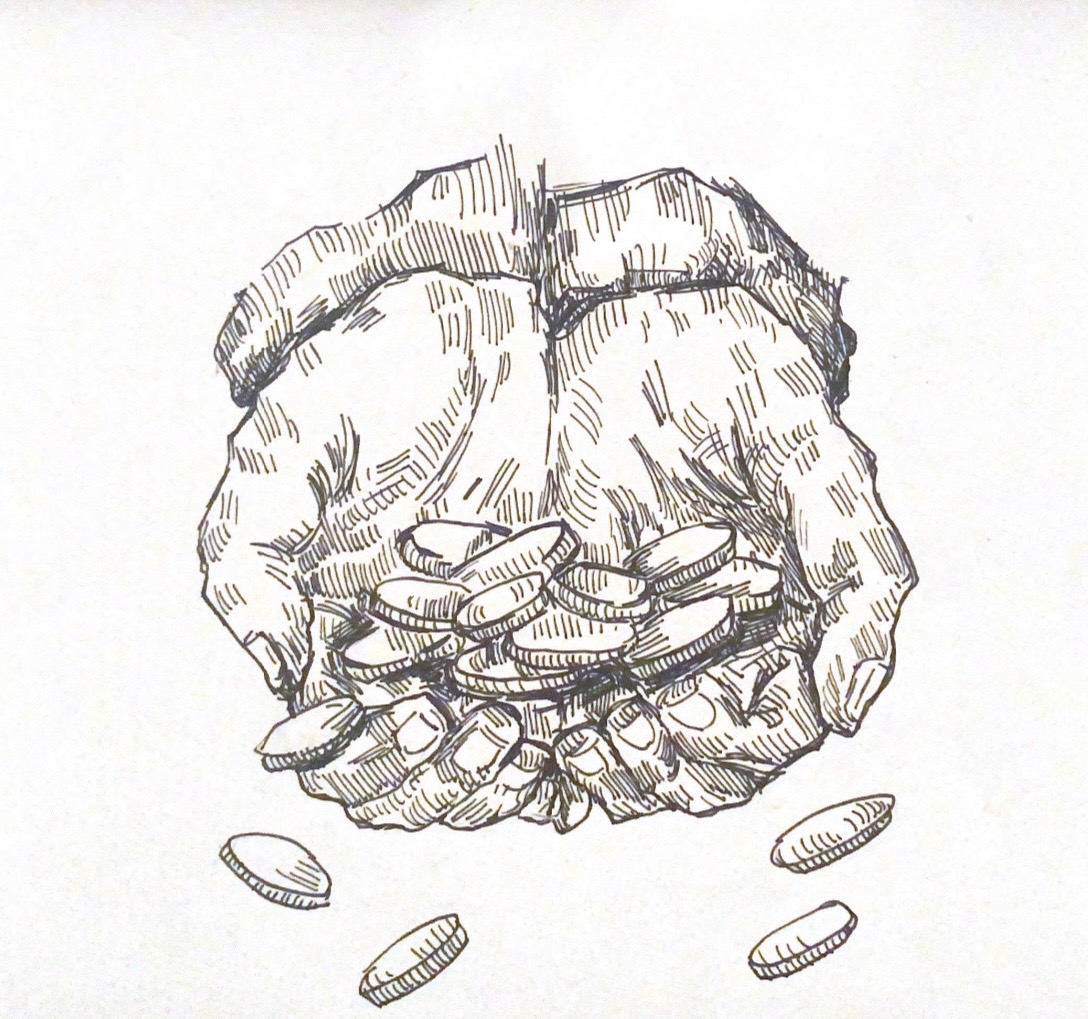SAT: the three-letter acronym that scares every high school student. Is it worth the high cost of test prep services to achieve that coveted high SAT score?
A high score is priceless
By Allegra Caldera
You wouldn’t take an AP test without preparation by an AP teacher, or a physics final without the help of a science teacher. So why take the SAT without the help of a tutor or a test prep course?
An important test with unfamiliar elements can throw off even the brightest of students. Prep courses help teens get comfortable with an intimidating test by giving them practice exercises, strategies for answering questions, subject matter review and time-management help. The assistance from someone who is familiar with the test and able to answer student questions is invaluable.
The SAT is a strategic test–students have to know the rules of the game to score high, said Janice Marmor, who manages the career information center. Tutors and test prep instructors know the tips and tricks that can’t always be found in a book, Marmor said.
SAT prep courses help students achieve scores that accurately reflect their capabilities and intelligence. Preparation materials, from free online quizzes to full-length courses, are widely available, so all committed students should have some form of preparation.
Test prep courses force students to set aside time to prepare for the test, something that studying alone doesn’t always do. A very disciplined student might be able to review successfully with a prep book, but certainly not everyone can. Test prep provides structured, regimented study without distractions. And some instructors find ways to use unusual and innovative methods of preparation. For example, math teacher Phil Chang of test-prep company, Capital Educators plays songs on the ukulele to help his students prepare for the SAT.
Critics say courses’ prices, sometimes upward of $1,000, outweigh the average student score gain of about 30 points. But even a small advantage is an advantage. A substantial minority of colleges report that a small score gain could have a large impact on admissions, according to a study by the National Association for College Admissions Counseling, which surveyed member colleges. So those 30 points could mean the difference between acceptance and rejection.
Some students see larger gains, especially those originally in the lower score range, according to a quote posted on Kaplan’s website. A testimonial on the Capital Educators website attests to a score gain of 320 points and Kaplan, according to the Wall Street Journal, says a pair of students they coached increased their SAT scores by 330 and 450 points respectively.
Prep courses don’t need to be a major expense; Whitman offers a semester-long SAT prep class.
Most Whitman students already take advantage of tutors or prep courses to prepare for the difficult tests which will help them get into college, Marmor said. It’s foolish to come to a test unprepared when everyone else has studied.
Don’t waste your money
By Chris Hoogstraten
Raise test scores in as little as five weeks! Get into the college of your dreams! Ace the test, and lose weight while doing it! Commercial SAT prep courses claim to do some amazing things, but don’t be so quick to believe the hype.
The private SAT tutoring industry is an expensive behemoth that capitalizes on student stress by promising remarkable score improvements that it often fails to deliver. Rather than using expensive SAT tutoring, students should take advantage of free or less-expensive alternatives.
SAT prep courses have a very limited effect on SAT scores, contrary to prep companies’ claims. Students taking prep courses from 2002 to 2004 raised their overall scores on the 1600-point SAT by an average of 30 points, according to a 2009 study by the National Association of College Admission Counseling. A 1998 study by the College Board yielded similar results.
Despite SAT prep’s meager results, two million students spend $2.5 billion on test prep and tutoring every year, according to the market-based research firm Eduventures Inc. The average costs for commercial coaching in 2009 were $400 for an online prep course, $1,100 for enrollment in a prep class and $100-200 per hour of in-person tutoring, according to the NACAC.
The limited success of such tutoring makes these courses unjustifiably expensive. If a student spends $1,000 on SAT prep and improves by 30 points, he’s paying $33 per added point.
Most programs, however, lead students to believe that their investment will yield an improvement far greater than a mere 30 points. SAT Prep companies such as StudyPoint, Capital Educators and Prepme advertise average “guaranteed” score increases of 100-200 points, 150 points and 305 points, respectively. The SAT prep industry is not regulated, allowing these companies to make exaggerated claims without any accountability.
There’s no need to shell out hundreds of dollars for private SAT prep. Whitman offers SAT prep as a regular class and the CIC lends students prep books at no charge. The College Board, which makes and administers the SAT, offers an official study guide for $20, and there are many free SAT practice tests online. These inexpensive alternatives to private tutoring can help students become comfortable with the format of the test and brush up on their basic knowledge without the high price.
The tutoring business does help students gain a small boost in scoring, but this advantage doesn’t live up to the misleading claims of some commercial SAT prep companies, and it certainly doesn’t warrant costs of over $1000. Students can and should use other readily available and inexpensive alternatives to prepare for the SAT.










Seasoned Taker • Nov 22, 2011 at 4:59 pm
Here’s my 2 cents. In response to the notion that AP courses help you for AP tests and a physics teacher helps for a physics final. That is slightly different from an SAT tutor. The tutor, like AP and physics teachers, is only there to teach you techniques and clues that you didn’t know before. After learning, like in AP or physics, it’s all up to you to study and practice like any other student should.
In response to the SAT prep course offered at Whitman, it’s a little loose to just throw it out there as a perfectly good alternative. I had taken it 3 years back and I found it very unhelpful and I honestly didn’t gain much out of it. Granted it has changed and has a math teacher to help with that and other resources as well.
But there are big difference between the private companies and taking it at school. At school it is only 45 minutes a day. At CapEd it is a few hours a session, and each section has about an hour devoted to it. Another difference is the teaching method, like Allegra had already said, to adapt to enhance the learning process. But the people at CapEd do this as a job. The teachers are required to take the SAT with other students so the teachers are constantly reminded how the SAT feels and looks like. From my semester past at SAT prep at Whitman, we learned from a book that had answers already there from a book that was a couple years old from that time.
Teaching the SAT is not the same as teaching a English or math or music. When I took it, an English teacher was teaching this course, and I appreciated the time the teacher spent to help us. But just as I would want a physics teacher to really understand physics, I would want an SAT course taught by someone who really and I mean REALLY understands the SAT like CapEd has their teachers do.
Bottom line: all the help money can or can’t buy means nothing if the student doesn’t try. Or practice. A lot.